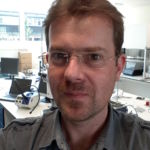

Emerging Technologies March 2022
March 24, 2022 @ 13:00 - 14:00
VIRTUAL MEETING – 24th March 2022
Overview
The APS Emerging Technologies Focus Group, is pleased to announce their webinar which will offer plenty of opportunities for discussions. This meeting will bring together expert speakers from academia and industry and will include a talk from a junior researcher and a talk from a senior researcher from industry or academia.
Who should attend
This meeting is ideally suited for PhD Candidates, Academics, Industrialists, Specialist Technology Providers, and Regulatory Personnel. Overall, the content of this special series has been carefully crafted to complement the existing APS portfolio and the Emerging Technologies Focus Group hot topics.
Speakers and Chairs
Dr Ian Johnston, Associate Professor, Head of the Microfluidics & Microengineering Research Group, Director of the Centre for Research in Biodetection Technologies, University of Hertfordshire
Ellis Smith, PhD Student, University of Strathclyde.
Programme
A microfluidic approach to investigating vascular cell fate at the single-cell level



